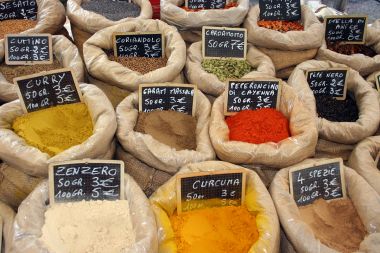Hummus, world peace and the kingdom of God

The world celebrated International Peace Day yesterday in a host of creative ways, but one particularly tasty idea captured my imagination. As part of International Alert'sTalking Peace festival, Conflict Kitchens sprang up in London to encourage dialogue around the theme of peace, over a meal. Inspired by the US Conflict Kitchen, in which meals are themed around the cuisine of nations in conflict with America, these pop-up eateries provided food from Myanmar (Burma) and lesser-publicised nations affected by conflict, such as Jordan and Peru.
It wasn't the first time I'd been struck by the notion of meals-as-peacemaking. A couple of years ago I received the cookbook, Jerusalem, in which the writers and chefs, Yotam Ottolenghi and Sami Tamimi, see hope in a plate of hummus. Ottolenghi grew up in Jewish West Jerusalem and Tamimi, a Palestinian, in East Jerusalem. Meeting in London as adults, they collaborated through cooking, with a desire to reflect both cultures. The results are both meaningful and delicious.
They write: "Although Jerusalemites have so much in common, food, at the moment, seems to be the only unifying force in this highly fractured place... It takes a giant leap of faith, but we are happy to take it, to imagine that hummus will eventually bring Jerusalemites together, if nothing else will."
The meal table is a place where we can relax into vulnerability; a place to be ourselves. Where, with a smudge of sauce on our chin, we can (sometimes literally, inadvertently) reveal the soft underbelly, of who we really are to our fellow diners. And with defences down, we can converse honestly with those with whom we're sharing a dish. It's apt that the interfaith youth project in my neighbourhood is called The Feast, providing a 'table' for young Muslims and Christians to gain understanding of one another and learn what it means to be peacemakers.
In Middle Eastern culture, there is something even more structured at work, in which meals can be occasions in which disputes are formally resolved: "The ritual process of sulh (literally meaning 'peace')... usually ends in a public ceremony of musalaha ('reconciliation')... The ceremony includes a visit by the family of the perpetrator to the victim's home to drink a cup of bitter coffee, and it concludes with a meal hosted by the family of the offender," writes Phil Champain in the Guardian. Here a meal creates a bridge of reconciliation. It's hard to remain angry with someone you're eating with.
Let us offer one another a sign of peace
Our model peacemaker was accused of being a glutton and drunkard. He spent much of his time eating and drinking with Pharisees and tax collectors – people from opposite sides of the track. And during these meals he teaches about all kinds of misfits who accept the invitation to a banquet that is to come. There is no separation of medium and message; Jesus embodies the invitation to the feast.
Theologian Peter Leithart writes: "For Jesus 'feast' was not just a metaphor for the kingdom. As Jesus announced the feast of the kingdom, He also brought it into reality through His own feasting... He did not come preaching an ideology... He came feasting in the kingdom. Jesus did not go around merely talking about eating and drinking; he went around eating and drinking. A lot."
Our final destination is not a cloud with a built-in harp stand, but an international feast. The kingdom of God is people of every nation and culture – including those who have been at war with each other – eating and drinking together. I'm not sure what's actually going to be on the table, in the dishes, on our forks (or chopsticks), but the future is definitely foodie. And if we want that kingdom to be embodied even now, then we'd better get cooking.
Of course, there is a feast of peace at the heart of Christian worship, in sharing Communion together. It's a meal that embodies reconciliation – to one another, as we shake hands or embrace, prior to partaking – and to God, as we recall Jesus' body being waged war upon, so that we might find peace.
The service of Communion displays its power most fully, where people across barriers are united through the simple act of eating a morsel of bread and drinking a sip from a communal cup. Radical difference is overcome, through the broader perspective of Christ's broken body and shed blood. For example, on special feast days, Mass is celebrated at the Mexican/American border, where US citizens decrying the treatment of Mexican migrants share bread and wine with their neighbours, through the slats of the border fence.
The Church can fulfil its mandate to be peacemakers in many ways, but most simply (and deliciously) through the meal table. By extending the hospitality of our ordinary meal table to those who are different from us, even – especially – those with whom we're in disagreement, we are, through eating together, both reminded of our common humanity and enacting something of our future hope. And in doing so we reflect something of the God whose priceless act of peacemaking we recollect through a bite-sized meal.
So what does peace taste like?
It tastes like bread. It tastes like wine. But sometimes it tastes like hummus too.











